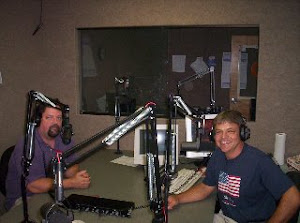In honor of Presidents’ Day this week, I thought I would take a few minutes to examine and list those who rank as “the greatest” in our nation’s history.
After perusing almost twenty different surveys dating from 1948 to today, and including expert and non-expert opinions on both the Left and the Right, I was surprised by the near unanimity in the rankings. With only a few exceptions, the Top Ten is relatively the same presidents in every poll just different arrangements.
In order to come up with a final Top Ten of my own, I created a system of rating each president using three main criteria: peace and prosperity; inspirational ideas; and, leadership for the times.
Perhaps the most interesting aspect of this analysis was how “leadership” dominated the rankings. We always hear about “peace and prosperity” but that was the least important category by the judgement of history. At the end of the day, it is a president’s ability to lead and inspire through difficult times that seems to attract the most respect and regard. It’s also the one thing no president can truly prepare for, or anticipate.
Leading the list is the “Father of our Country,” George Washington. I rank him ahead of Lincoln because of his indispensable value as THE Founding Father. I also give him credit for the relative “peace and prosperity” that existed throughout his self-imposed, two-term Administration.
Second is Lincoln. War and deprivation reigned during his time, but “Honest Abe” persevered through the anguish of the Civil War with an unrivaled instinct for determined leadership and inspiration that saved the Union and freed the slaves.
Coming in third is FDR. Again, it was war and deprivation, on a scale not seen since the Civil War, that challenged our nation’s survival. Franklin Roosevelt was able to inspire America through the challenges of both the Great Depression and WWII with a fearless and charismatic leadership that gave hope to millions.
Number four is Jefferson. Thomas Jefferson, author of the Declaration of Independence, remains one of the most politically inspirational figures of all time. His ideas of individual liberty and democracy are the foundations for limited government and freedom the world over. His overall leadership in other matters, however, was a bit lacking.
Fifth on the list is Teddy Roosevelt. Bully! In some ways TR was like Jefferson- idealistic and unstoppable. He was the inspirational leader for his time, busting up big monopolies and initiating a conservation movement to preserve our natural resources. His policies, however, didn’t always meet with favorable results.
Sixth is Jackson. Andrew Jackson was perhaps the most stubborn of all men to serve as Commander-in-Chief. “Old Hickory” founded the oldest, continuing political party in the world today- the Democrat Party. He’s also the father of the Jacksonian Era that dominated American politics for a generation. Despite economic and political failures he re-created the office of the presidency, making the Executive Branch the undisputed, most powerful instrument in the Federal government.
Number Seven on the list is Ronald Reagan. Reagan did some re-inventing of his own ushering in an era that’s been called the “Reagan Revolution.” Reagan, like Jackson, had the tenacity to exert a strong military pressure on America’s enemies. The Reagan Doctrine brought an end to the Cold War, and “Reaganomics,” (lowering the top marginal rate from 70% to 28%), lifted America out of an economic “malaise” yielding an economic expansion of record proportions.
Eighth on the list is Eisenhower. What Dwight D. Eisenhower lacked in inspiration he made up for in “peace and prosperity” and solid, stoic leadership. Eisenhower represents a trend in the Top Ten: of generals or war-time leaders making the list. Ike has been the biggest mover in all the rankings over the years! At first, his Administration was viewed as average, now he is a consistent Top Ten pick.
Ninth is JFK. Primarily, it is John F. Kennedy’s inspiration and idealistic leadership that keeps him a perennial Top Ten favorite. The Bay of Pigs and the Cuban Missile Crisis serve to demonstrate his Administration’s weakness in foreign affairs. Cutting taxes, initiating the space program and moving the country forward on race relations remain important parts of his overall legacy.
Number ten is Truman. Harry S. Truman became president after Roosevelt died and was left with the difficult task of winning WWII. He dropped the bombs on Japan and secured victory for the Allies ending the worst war in human history. He initiated what would become known as the Truman Doctrine- the containment of communism around the world. Though not as inspirational as other Top Ten presidents, Truman’s homespun, no-nonesense style endeared him to many as a refreshing change from normal politics.
Those presidents who were not war-time leaders or generals in the Top Ten are: Jefferson, Reagan and JFK. I think what sets them apart is their ability- minus an overt national emergency- to articulate and inspire a political movement. When one considers the “Declaration,” the “Great Communicator” and “Camelot” it’s easy to see a pattern of uncommon inspiration.
So, what can we take from this little exercise? I think it can shine some light on our current choices for president. Is there someone in the running for 2008 that has the exceptional traits of: securing “peace and prosperity,” providing “inspirational ideas” or demonstrating “leadership for our times?” Reflecting upon this impressive list of America’s greatest presidents, can we see Hillary, Obama or McCain someday fitting the bill? (send comments to WFC83197@aol.com, or mail to POB 114, Jacksboro, TN 37757)
Thursday, February 21, 2008
Subscribe to:
Comments (Atom)


